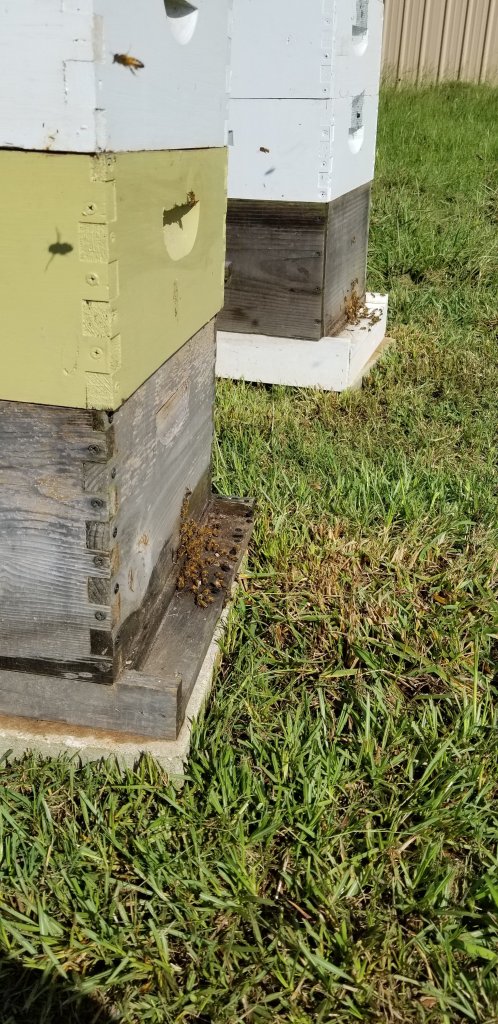
I bet you are tired. I bet that you don’t feel like your usual self and you may at a loss to know why. The country is opening up, so we should feel energized and excited, right? But most of the people that I’ve talked to don’t feel this way at all. They feel overwhelmed. Some of us are forgetful or scatterbrained. Some of us don’t want to go back to doing all the things we did before. Some of us feel frustrated that we can’t do all the things we did before! Do any of those describe how you are feeling?
I’m writing this post with the sole purpose of letting you know that feeling all those things is not just okay, it’s perfectly normal. And not just normal, those feelings are so predictable that they should be expected. I’ll add a spoiler here, to let you know, that they should go away in a few months after you get to your new normal.
Yes, I did say new normal. Nothing will ever be the same, but we already knew that deep down didn’t we? By the way, it’s totally okay to grieve that we lost our old normal. Allow yourself time to do that. (If we were talking face to face you could see me smiling gently, leaning in slightly, and maybe giving you a little encouraging nod.) You need time to recover and it’s important that you take it. Okay, back to the point, but don’t skip this step. :)
But this was expected?, you ask.
Yes, yes it was. Or, it should have been.
Maybe now you are wondering, “Why didn’t anyone tell us? Why isn’t anyone talking about this!?”
To some degree there was discussion, although it was very much drowned out by other sources encouraging caution, the fact that we were in automatic “Survival Mode”, and that most people, in my opinion, weren’t experientially prepared to hear it. But maybe you are now, so, please, keep reading. I’ll explain what is happening and how to start feeling better. To skip my long-winded, but somewhat amusing (in my opinion), explanation and go straight to the bullet points click here. :) For the fun and detailed version, keep reading.
The “What” that is happening
Stress affects two areas of the brain critical to our daily activities, the pre-frontal cortex –the part of our brain responsible for all the planning, reasoning, short-term memory and other skills we need for day-to-day responsibilities and the part of our brain that produces the stress response (Fight, Flight or Freeze), the amygdala.
When we experience fear or stress, two things happen: 1) The amygdala switches on and 2) the pre-frontal cortex switches off. Normally, those things are good. They keep us alive in life or death situations. They allow us to act quickly and avoid threats to our well-being then switch back when the threat is gone. Normally. But the last 18 months have been anything but normal.
When we are in stressful situations for a long time, our brain starts to settle into the pattern of the amygdala running things and the pre-frontal cortex taking a nap. You can think of it as Amy, the bossy girl who takes over and makes decisions without thinking them through and PFC who is pretty slow at getting stuff done because he thinks everything through and takes lots of rest breaks. Over time, Amy and PFC get used to their new roles and go along happily as though they were meant to be there. Except for one thing! When PFC is awake, he has this nagging feeling that things just aren’t as good as they should be and the crowd of long-term memory (LTM) is there to back him up. LTM is the witness that things just aren’t what they used to be. Amy just doesn’t care and keeps on trucking through.
Wow, I hope that little story didn’t make things more confusing!
Another thing that happens when we are in Survival Mode is that emotions are set aside so that our bodies can perform the functions critical for survival. It’s part of the Fight or Flight response. We can’t run from a tiger at top speed or lash out and kill a venomous spider on our ottoman (that just happened as I was writing) if we have to process all the emotions that being scared and having to run away from a big scary thing induce. So our amygdala allows us to act and then we process those emotions later. But, here’s the tricky part, I said “set aside”. Those emotions don’t go away. We have to process them al later! It can even happen up to a year or more after an event. We may feel mad or sad and it’s completely unrelated to what is currently happening. So if you wake up feeling weird one day when you are supposed to be having fun, it will be okay! Just acknowledge it, take a moment to process and feel it. It may not go away quickly, but in my experience most of the time they do. The important thing is to realize that that is also part of recovery.
Bottom Line: The amygdala usurps control and shoves emotions aside and the pre-frontal cortex settles for the status quo.
The “Why” we are feeling what we are
I probably don’t need to tell you that the last year has been stressful. The restrictions and circumstances surrounding the Covid-19 Pandemic have placed us under a high level of prolonged stress. We’ve worried about everything from losing our jobs to food safety to running out of toilet paper, for crying out loud. And then there is the whole not being able to see other people’s faces which is a whole other topic. But, yeah, we’ve all been stretched and pressurized in ways that we’ve never faced. And it lasted a very, very long time. Anyone else, still occasionally forgetting that we are actually in 2021?
Bottom Line: Lots of stress + long period = not good for our critical thinking skills and emotional processing
The Good News
The great thing is that it’s not permanent. It’s completely reversible, but it takes time and effort. We have to choose to do things that shut down Amy from her control freakishness and over-reacting and wake up PFC from his little nap. Here’s how: Take some deep breaths and plan a vacation. Ok, it will take a little more than that, but it’s a start. The thing is that slow-controlled breathing is exactly the opposite of what the amygdala activates when we are getting chased by a lion [or a when a spider jumps out of our blanket]. Breathing sends a clear message from our body to our brain that we are, in fact, not in any real danger. So smell the roses, then blow out the birthday candles. Five times. Slowly. I also teach my kiddos to use Bumblebee or Snake breaths when we are working on improving self-regulation. They should be pretty self-explanatory, but if not, just make those noises on the exhale. Cow moos work too. Whatever animal floats your boat! :) The second part involves activating the pre-frontal cortex to get it back in shape, start with small stuff and gradually build up. (Tip: Plan something that doesn’t matter first, not a wedding.)
Bottom Line: Choose calm, choose to slow down and think things through.
Activities to try
- Take 5 slow, deep breaths (remember to smell the roses and blow out the birthday candles)
- Practice yoga
- Go play outside! Run, jump or play corn hole. Pretend like you are a kid again.
- If not yoga, stretch like when you get up in the morning and follow up with some neck and shoulder rolls.
- Work at a hobby (gardening, craft kits and baking or cooking incorporate the mindfulness and planning aspects critical to recovery).
- Play board games.
- Look at maps and plan a new walking/jogging route, then go!
- Blow bubbles outside.
- Get a massage.
- Give yourself time to adjust.
- Memorize scripture.
- Pray. Have a real conversation with God.
What if it doesn’t go away?
For most of us, this befuddled reality is only temporary and we will gradually start to feel better as life returns back to normal or we begin to adjust to our new normal. But if you still aren’t feeling yourself after a few months or you are feeling depressed, schedule an appointment with your doctor or mental health therapist to discuss it.
The Short Version
- The amygdala takes control of the brain decreasing reaction time and increasing (theoretically) survival in a life or death situation due to a stimulus triggering a physiological response.
- The pre-frontal cortex shuts down (short-term memory, working memory, reasoning and other executive functions, as well as emotional processing).
- Due to prolonged stress, the amygdala and pre-frontal cortex stay on and off respectively.
- To resolve this and reactivate the pre-frontal cortex participate in activities that include mindfulness. Actively practice relaxation and self-care. Check out my list of activities above to calm and restore your mind.
- Talk to your doctor or mental health professional if these feelings last longer than you think they should or get worse.
If you are having thoughts of suicide or harming yourself, please call the National Suicide Prevention Lifeline where you can talk to someone immediately. They are available 24 hours a day.
1-800-273-8255
Or, click here to go to the Veterans Crisis Line website – Phone, Text and Chat available
While most of us aren’t experiencing the level of stress that combat veterans endure, prolonged stress of any level will have lasting effects. The level of stress is directly proportional to the level of response. These resources are a good place to continue learning about mental well-being.
If you are thinking, “How do I know you know what you are talking about? You are just some random person on the internet!”, good for you! I’m glad you are thinking critically. Here are some articles from reputable sites and also a Wikipedia link about Operational Stress. Please, please, please read them! Educate yourself and don’t just take one person’s word on mental health.
- Amygdala Hijack
- Coping with Traumatic Events
- Merck Manual Overview of Anxiety and Stress Related Disorders
- Getting Help for Combat Stress
- The Wikipedia link – Operational Stress Injury
“Now may the Lord of peace himself give you peace in all times and in every way. The Lord be with all of you.”
2 Thessalonians 3:16









 Today is the first day, in a very long while, that I’ve even attempted to write something coherent for the public to read.
Today is the first day, in a very long while, that I’ve even attempted to write something coherent for the public to read.